Skills to Foster Training: with Nicki Molton
Date published
11 June 2024
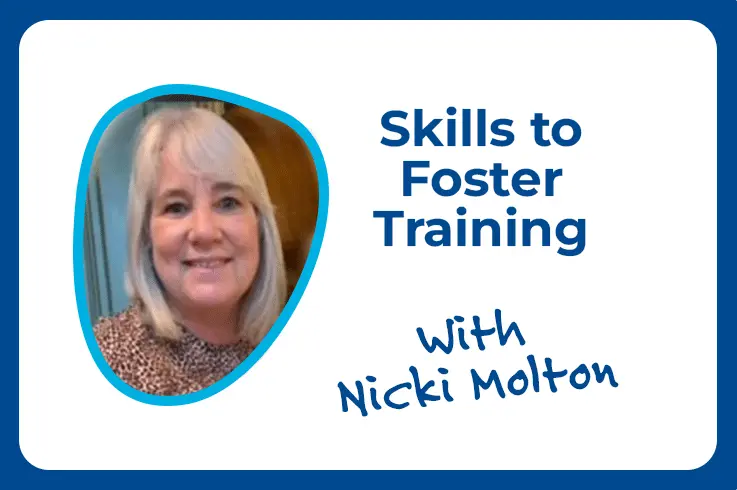
Nicki Molton is based in the West Country near Swindon. She has a number of responsibilities at Blue Sky Fostering, including running the Skills to Foster Training. Here she discusses the Skills to Foster course in some more detail, as well as gives an overview of the process behind fostering a child.
Fostering insights
11 June 2024
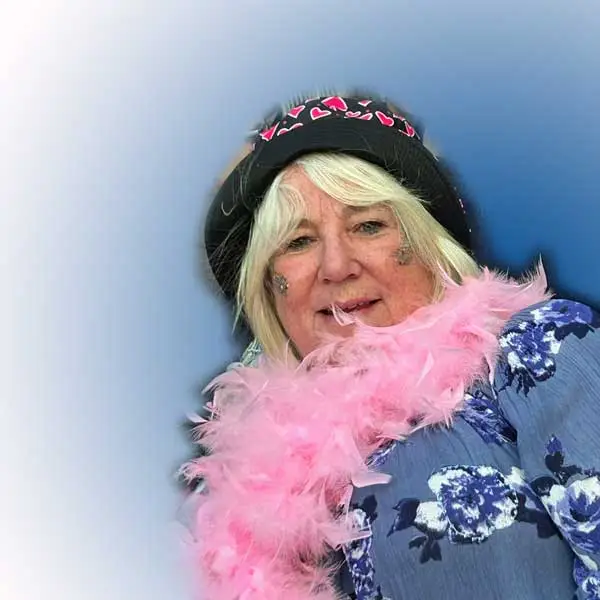
Nicki has been with Blue Sky for almost a decade and in that time has worked in numerous roles, including as a social worker. Her current role is titled Learning and Development Manager, but in her own words, ‘that covers a whole load of things!’.
Nicki is a treasure trove of knowledge about the roles and responsibilities of a foster carer. Here she discusses running the Blue Sky Skills to Foster Training.
Well, usually a potential foster carer has looked up Independent Fostering Agencies and Local Authorities online; so, they've had a look and they’ve thought, ‘Okay, I quite like the look of Blue Sky Fostering, I'll make the call.’ So, they make the call, and would likely talk to our Carer Engagement Manager who would answer all their questions. If that goes well, someone from Blue Sky will pay an initial home visit and if that goes well, then the person is invited to apply to become a foster carer with Blue Sky.
Once they apply, they go into assessment. They’re allocated an Assessor who helps write their Form F, which is the big document that tells everything about the foster carer and their background. They'll be invited to pre-panel workshops and have their checks done: They have to have medicals and DBS checks, attend the pre-panel workshops, attend the Skills to Foster course, and then finally, they go to panel.
After the panel date, they will be recommended whether or not for approval. It's the agency decision-maker that signs it off.
So, the Skills to Foster training course is at the beginning of a foster carer’s journey, before they start fostering. We like to get the course in early, so we can give them as much information as we can about fostering.
We run the course every six weeks over a weekend, and generally, there are around 8-10 participants. Somebody from the Placements Team at Blue Sky Fostering comes into the training. We have a foster carer who comes in to talk, a young person who's in foster care who comes in and talks, and sometimes, we have a young person who is part of a family that is fostering who comes in and talks from their perspective.
You get lots of group discussion, and lots of relationship building. Yeah, it's great that it’s face-to-face and the participants really enjoy it.
It’s a very emotional experience. We did one recently with about ten carers and you could see people come in and how nervous they were. Everyone sits in the same place each time; that's their safety and their comfort. We tell them that we are going to talk about some difficult things, and you can see the kind of - ‘Oh my gosh, what are we going to do? Are they going to psychoanalyse us and what am I going to say?!’ But gradually, people just relax and know that we've got lots of skills and experiences to share, lots of anecdotes.
I grew up in a fostering family, so I know what it's like to be a birth child in a fostering family. We do some exercises where they've got to get in touch with their emotions; think about what it would be like to be a child that’s removed from their home and not know where they're going.
I don't know what their own personal experiences are, so you might trigger some things in the room. It has to be handled delicately and very professionally. But they get a lot out of it and the feedback that we get after the course is excellent.
Everybody loves it, which is good. I'm really passionate about it. Absolutely. And if they've got children already in the home that they want to have a session with me, depending on where they live, I might go down and see them face to face or I do a Teams session where the kids can talk to me about any questions they've got about fostering.
It's very much about the whole full family that fosters, so I can run Attachment Training and Safer Care Training with their children too if it's needed.

Our latest piece of work has been to create a new workbook that incorporates training, support and development standards [TSD]. It’s a government initiative about professional development for foster carers. So, we’ve just set that up and linked it to our training as extra support.
I also decided to set up a WhatsApp group after every Skills to Foster group. I’ve currently got seven or eight groups running, so I have to have to keep on top of who’s who! It’s just an opportunity to stay in touch with foster carers in their first year of fostering – during their assessment, up to panel and after panel. So, they've just got one point of call - that's me and the carer that I train with - and we take questions about anything to do with Assessment. If they're not sure about what their approval status looks like for instance. We can help them follow up on any other points they might want more information about. We all keep in touch with each other through the WhatsApp group. It’s a support service that works very well.
All those in assessment have a buddy carer assigned to them as well – someone that is already a carer in their local area that they can talk to.
Yes, we run training for the children who are already in the family home, if their parents think they would benefit from it. Some children just want to chat and ask me questions like, are they allowed in my room, and what if I don't want to share my toys? What if they break something? What if I don't like them? All that kind of stuff.
So we talk about that - very much about sharing your parents. With the older ones, they need to understand a bit more about how the children coming to live in their home might have been parented very differently from how they've been parented.
During the Attachment Training, I try to help them understand that early childhood experiences will have an impact on how a young person behaves within their family. And sometimes kids will say, ‘If I did that, my parents would be really cross. And yet this new child seems to get away with blue murder!’ But it's about understanding the trauma that they've had and how you need to respond to it.
The other training is Safer Caring: how your family might need to alter their rules to have somebody new coming to live in their house. For instance, one of the things we talk to the kids about is making sure that they’ve got clothes on, pyjamas on, or a dressing gown. And you might want some rules about when the young person joining them is allowed in their bedroom - or whether they are allowed in there at all.
It's about why we have these rules and why we need to make sure that everybody's safe.
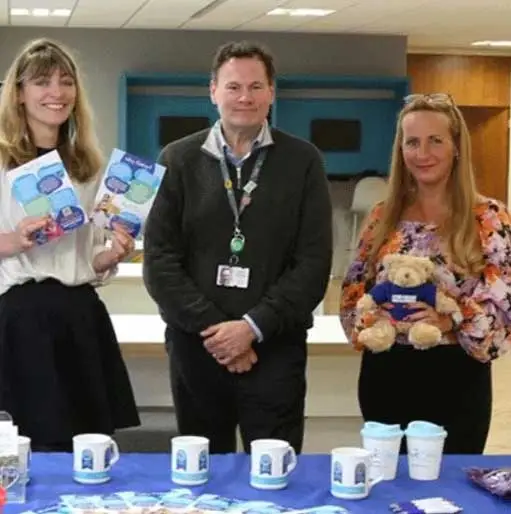
Lots! One aspect of my role is the Connect Team. Each area across Blue Sky has someone responsible as part of Connect, and my area is the West Country.
My role within the Connect Team is to check in with the teams and with the foster carers, just to see how they are, if there's anything that they want to talk about, any difficulties, any ideas, or anything that we should be doing differently.
I check in with our support groups for the foster carers, as well as the local team meetings, as another layer of support for the work that we do. I like to keep informed of what's going on in my area. For instance, one of our foster carers recently invited us to his workplace [Arval in Swindon] so that we could talk about fostering. It allowed him to share a little more of his life outside work with his colleagues, and events like that are nice because it's an opportunity for Blue Sky and foster carers to spend time together talking about something that we are all passionate about!
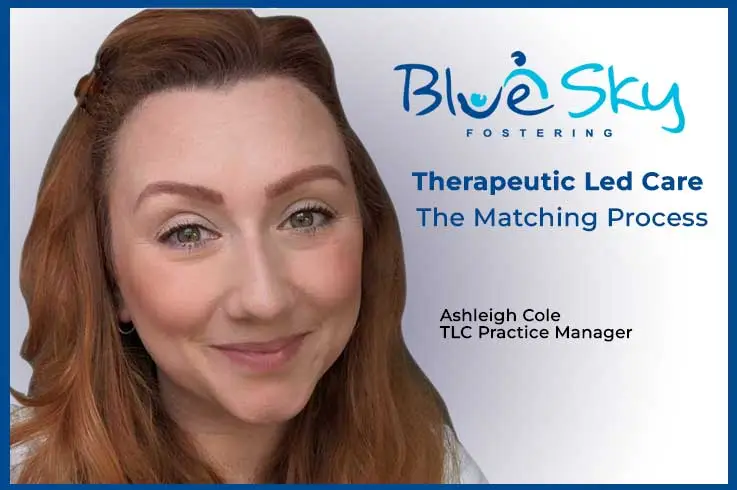
Ashleigh writes about the complexities of the Therapeutic Led Care matching process.
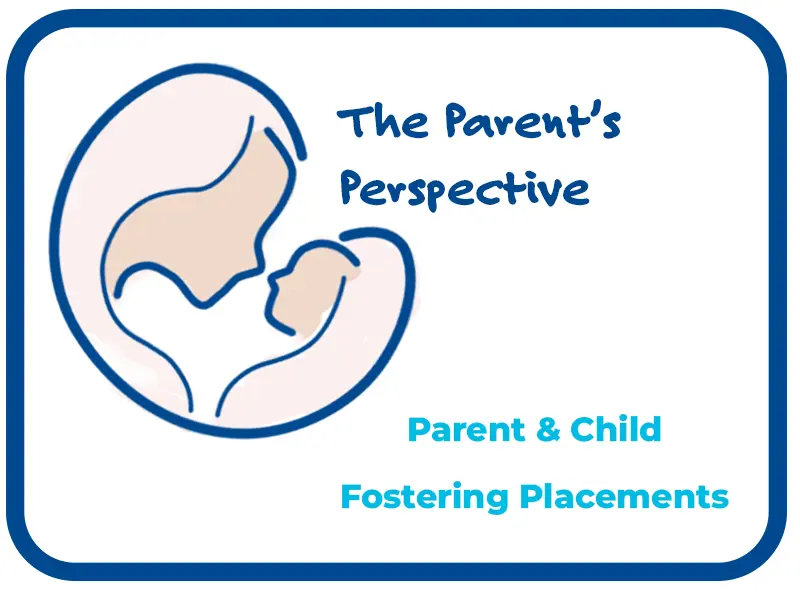
This is a powerful interview with a parent of a parent and child fostering placement.
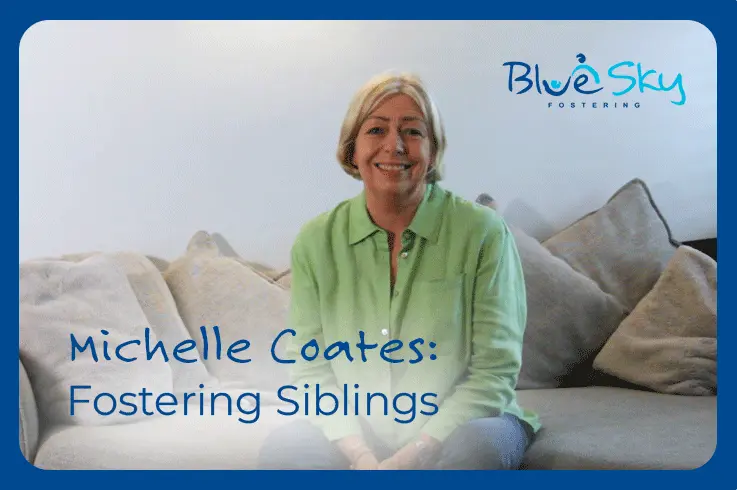
Watch this film as Michelle describes her fostering experience, fostering siblings.